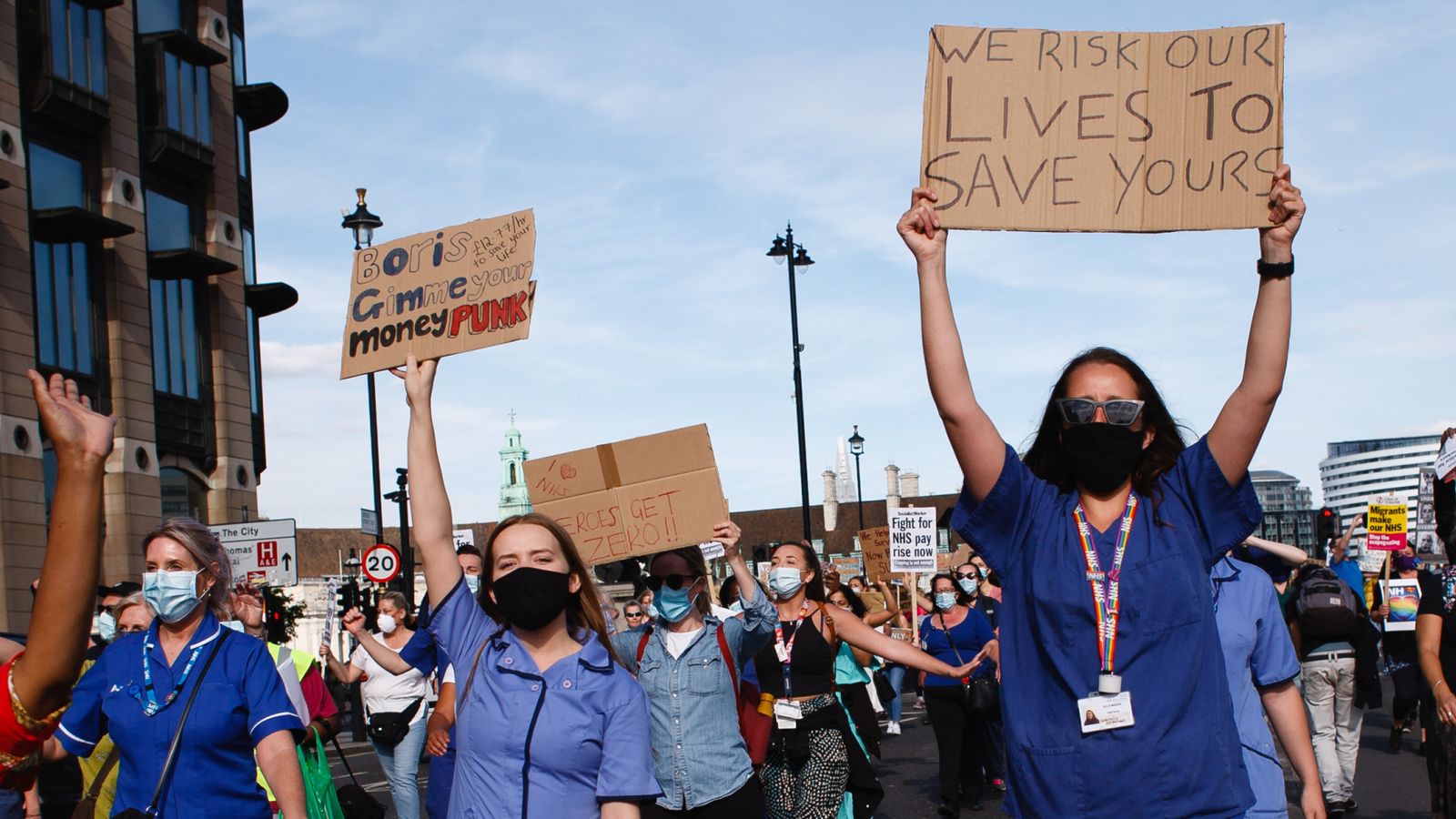
This article appeared in our magazine for Labour Party conference 2022
By a health worker
Foreign nurses are being exploited by the NHS and private health care organisations. They also face severe financial difficulties, are exposed to unregulated landlords, and are left vulnerable to bullying due to the restrictive conditions of their contracts.
Thanks to the Hostile Environment, Brexit, and the cancellation of bursaries, we have a record number of nurse shortages in the NHS. This has led NHS Trusts and private companies to recruit nurses from the Global South to meet this increasing demand. These nurses are often lured in with fancy recruitment ads promising them great working conditions and benefits, as well as a better quality of life for them and their families. However, the reality is quite different. Their contracts have terms which these Trusts say are for recouping the costs of sponsorship of their visa and recruitment, which prevent them from leaving their job in the first three years unless they are willing to pay hefty fines. Most of these nurses are barely paid minimum wage while they wait for their qualifications to be recognized and to pass additional exams. This forces them to stay in their roles against their will. In some cases, this leads to nurses being exploited and bullied by staff and the Trust as they know they cannot leave even if they’re mistreated.
They’re also facing other challenges when they arrive that leave them in a precarious position with respect to pay and accommodation. All foreign nurses who are from outside the UK and EEA (European Economic Area), no matter how many years of experience they have, need to pass a competency exam called Objective Structured Clinical Examination (OSCE) to work as nurses in the UK. This exam should be arranged by their prospective employers as soon as they reach the UK, ideally within 6 weeks, but due to the shortage of space at test centres, it is now taking up to 6 months in some instances. While they wait to take this test, nurses still do everything they would as a nurse but on paper, they work as a Health Care Assistant (HCA) getting paid minimum wage until they clear the exam. This is not made clear to these nurses before they arrive, many of whom have commitments to support their families, sending money back home for income support.
Most of these nurses have to find accommodation after the first few weeks of arrival. For this, they have to show proof of earnings and their wages are not enough to sustain them paying the rent. Most employers refuse to act as a guarantor (which is usually needed when renting privately) because of the responsibility involved. With most of the nurses leaving all their family and friends behind and entering the country totally isolated, there is little other option but for them to go to unregulated private landlords with no proper contracts, leaving them further vulnerable to exploitation.
This is how we are rewarding staff who are travelling across the world and giving up their lives to support our NHS.